By RAHUL DESAI
Woody Grant wants to get to Nebraska.
Somehow.
Anyhow.
He has made up his mind. This is what he wants to do. There’s a million dollars to be won. There’s one last paper to be signed. One last substantial mark onto a world he is quickly fading from. But Woody Grant doesn’t have much of a mind left to think with. He is a war veteran, haunted by visions of his past.
Nebraska represents a state (of mind) as far away as possible from the horrific reality of a battlefield. It could be redemption, a golden ticket handed to him by the Lord, one final chance to make everything right.
This is the sort of recurring dream (or nightmare) you get when you fail to gain closure from a relationship, or from a bad life decision, broken ties or even untimely deaths. Images of a future that could have been, or of a past that should have been. It feels so real that you try to pinch yourself in the dream, because it is too good to be true.
Woody considers this dream– this glimmer of hope lodged deep within even the brightest of brains– as something that is physically possible. He convinces himself that it is real, that it’s not one of those ridiculous what-if feelings. The lines are blurred.
And time is running out. Why?
Because Woody Grant is a drunk. He is an alcoholic.
He is so booze-addled and hopeless that even his cotton-candyish hair refuses to cooperate with him anymore. His eyes are so sunken and hollow that there is a perpetual look of bewilderment, of staring into a frightening vacuum, on his face. It is almost like he has a vision of the near-future, and it doesn’t seem so promising. He looks spellbound, but even he can’t tell you what spell he’s under. When he gazes upward, his mouth slacks. He looks– for want of a better term– dumb.
He doesn’t know it though.
He needs to focus fully on somebody to understand their words. It takes immense concentration. Maybe that’s why his prompt response is always a snappy grunt, as if he precisely gets what you’re trying to say, but intends to dismiss it like he used to, back in the day: Oh, I’m totally capable, so shut the fuck up.
Most old people react that way if you tell them they can’t do something—they have to discover the truth on their own. And even then, they’d be stubborn about it, refusing to admit you were right all along. There is a bit of them in all of us.
Woody wants to look attentive. He is convinced that he looks attentive enough to pass off as ‘normal’. If only he could see himself…if only he knew what he looked like…
What you see is the final stage of alcoholism.
Why it begins is not of consequence here, it could be a war (like in the film), a war with the family (more common), a war with yourself or, worse, a sudden realization of overwhelming failure. Of unfulfilled dreams.
Woody Grant is also my father.
My father was, is, an alcoholic. For as long as I can remember.
Alcoholics don’t stop becoming alcoholics when they stop drinking, or after rehab. They will remain alcoholics, because their tolerance to a single drink is a lot lower than ordinary humans. Their senses dissolve much faster. Their minds relax, to the point of dormancy, much quicker. It is not LIKE a disease. It is a disease.
When I finished watching Nebraska – the Alexander Payne movie about an estranged son taking his old father on an enigmatic road trip – I immediately realized that this film was too close to home to have an opinion about.
In fact, it is my home. And many other homes that are little more than sunken houses under the weight of societal pressure.
Woody Grant, essayed so authentically by Bruce Dern, scared the living daylights out of me.
Much like when David first enters the police station to be faced with the heartbreaking sight of a broken old man waiting to be picked up. The old man is his dad, but he looks so lost. So little.
David sighs.
“There’s the man of the hour!” he exclaims.
Woody, you can see, didn’t want this. While he is surprised to hear his son, he doesn’t want to show it. He has never showed it. Why should he be expressive now?
So what if he wanted to be rescued, his ego is too large to ask. So, he responds with a typical, gruff, rude “There’s the WHAT?”, pretending to be irritated, before his son indulges him further. He hates the look of sympathy in his son’s eyes, which is why his voice is naturally hostile.
What he refuses to see is that even his son wants to redeem himself. That look is not one of sympathy or sorrow; it is a broken heart. This gave me a solid whiff of the past, something I try so often to put behind me, and a depressing peak into the future.
The future isn’t too far away. In fact, it stares me right in the eyes.
 My father is 63, but can pass off as an older person.
My father is 63, but can pass off as an older person.
When he wakes up these days, his disheveled white hair is less Jack Nicholson and more Woody Grant. To see a cigarette dangling from his mouth, leaning to one corner while he is still in bed, adds to a general sense of hopelessness.
He claims to have been sober for more than two years now, but I have my doubts. Like Woody tells his son at the bar, “Beer isn’t drinking.”
Even if he has been clean for a while, his jaded puffed-up face will forever betray signs of it. Also, much like Woody, my father is a kind man.
He is arrogant, but nice.
Arrogance is a common trait in people that choose to fall prey to this defect, but even brilliance is. He can never say NO either, and he has been taken advantage of by people not willing to understand him.
Unlike Woody, he is no war veteran. There are demons in his head, which he has never let out, and has always chosen to put up a face for his son. His son, of course, is now an adult writing about him – but for him, I’m still the little boy who he’d shield with a smokescreen of white lies.
He was/is never rude, and doesn’t conform to the done-to-death cinematic stereotype of alcoholics turning violent and going on a rampage. Charlie Sheen and the rest are too Hollywood, too young, too cliched.
The worst, and oldest, of alcoholics don’t do that; the disease is too intrinsic for them to even react to it. Instead, their speech slurs, their decisions confound and their body language dies. They become a ghost of the people they once were, even if it’s only sporadic. Physical deterioration is only a side-effect of what, I believe, is largely a mental disease.
The patients are invariably confident people with a crippling inability to accept flaws, shortcomings, criticism and weaknesses. But most of all, it is society’s view and opinions of alcoholics – their flawed understanding of them, that doesn’t let them get better.
I will come to that later.
At the first motel stop on their road trip, soon after criticizing the impeccable craft of Mount Rushmore, Woody tries to quietly enter their hotel room while David is asleep. He has clearly hit the local bar after his son went to bed, and is now trying to find his way to his own bed. He trips in the dark, and falls. He starts bleeding.
His son rushes to him and reacts in a way a father reacts to his stubborn and disobedient child. Oh my God, Dad, Why?
When I was 21, my father had just gotten back home after a 3-month forced rehab stint.
He was bitter. Angrier than ever before. It came out in spurts. As far as he was concerned, no program in the world was worth his time. So he rebelled.
My mother was not like Kate Grant though. I told her to go live somewhere else for a few days till he stopped. His rage was internal, which made him even more dangerous around her.
As Woody tells his son at the bar, “You try marrying your mother and see if you can stay sober. ”
One of the nights, it was particularly bad. I carried my weak father to his bed after one of his binges (which I refused to interrupt), and told him to sleep. We will talk about this when you’re sober.
Of course, he made sure he was never sober, just to escape this nagging lecture.
I went downstairs to meet a friend. I didn’t want the friend to enter the house and see my father like that. Those who did, never came back. When I returned in an hour, I saw drops of blood on the floor leading to the bedroom. I followed the path of red, my heart plunging to familiar depths.
My horror was confirmed when I saw the yellow bed sheet soaked in blood.
There lay my father, back to me as usual, with the bedside lamp switched off. He was breathing heavily, determined to forget the last few minutes. Only, his body wouldn’t let him forget it.
I switched the light on, and he actually tried to behave like he was asleep. He knew he had made a mistake – like a puppy cowering guiltily after soiling a corner – but wasn’t willing to face the consequences. I turned him around and saw a huge gash across his cheek. He had fallen somewhere and hit an edge. My horror was toned down, and I reacted exactly the way David did.
Why, Papa, why?
“What Why? What happened? Are YOU okay?”
That is how he reacted. His face was a mess, but he thought he could fake his way out of this. By displaying concern for my concern. He has always been a bad actor, and is even worse when inebriated.
An hour later, his wound all dressed up, I sat by his bedside. I looked as he struggled to avoid grazing his wound against the pillow. Ouch ouch, he’d groan.
This is the kind of situation where you think it is all about you, and wonder what you’ve done to deserve this.
No, this is not about you.
This was NOT about me. I was only 21, but I knew this would never go away.
I also knew that abandonment was not an option. It couldn’t be. This was a man capable of talking Prime Ministers under the table, his knowledge vast and his potential humongous, but this was also a teenager refusing to come to terms with a broken heart; a young man refusing to confront the reality of unrequited love; a man refusing to grow out of his “wild days”; a genius who had shackled himself with the regular burdens of family responsibilities; and…a boy refusing to stop visiting his past. I understood him that night.
He wasn’t going to hold me back, sure, but at the same time, I had decided that he was never going to see me turn my back on him either.
The scars on his face remain. His cheeks, forehead and eyebrows; wounds of his war. If you ask him about these marks, he will tell you he got them while getting out of the ‘moron’ car.
The world is to blame, as Woody says, for his condition. He is only an ordinary man with a kind heart.
To his credit, my father has never asked me to “have a beer with your old man”. Because for him, I was not an adult back then. Why would you scare your kid?
I’m 29 now, and it’s too late for him to ask me anymore. Because, of course, he isn’t drinking. I did take the opportunity to joke about it though.
While driving past a shady bar next to the house a week later, I asked him if that was the place he went to in order to test his determination and will to stay sober. He got mildly irritated and looked away, a deep scar of forever being misunderstood etched on his brow, but he knew I was smiling.
Just like when David asks his dad Woody, on the hospital bed, if he left his dentures back at the ‘place where they don’t serve alcohol that you don’t call a Tavern’. Woody says it must have fallen back at the tracks. His son rolls his eyes at this new ridiculous excuse. Not again, Dad, he thinks. I can see through you. But they actually find his teeth by the tracks.
Well, what do you know? Dad’s always right.
When I later found the spot where my dad actually tripped and fell, I felt a deep sense of failure and grief. My heart broke over and over again.
It was by the dressing table, where I had put his phone. There were traces of blood on his phone too, which means he was, in fact, trying to call me. Because that was the ONLY number I had left in his address list.
I admit it isn’t easy to grow up with these memories, especially when I miss my dad at times.
He lives in another city – our hometown back in Gujarat – but I always remind myself that it’s even harder for him to live with these memories. That he chooses to put it behind him when he hugs me now, is commendable and brave. While I sometimes mistake it as a sign of acceptance, he reminds me that I am too young to be so brooding and intense. Topic is over.
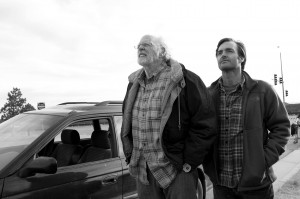 David, at one time, pours his heart out to his dad while sharing a few beers with him. He tells him about his break-up, and then stares at his dad. Woody’s face is blank, his mouth open as usual, staring into space.
David, at one time, pours his heart out to his dad while sharing a few beers with him. He tells him about his break-up, and then stares at his dad. Woody’s face is blank, his mouth open as usual, staring into space.
“Why did you marry mom?” David asks. “Because she wanted to,” says Woody, back in the conversation now that it’s about his wife—the reason he is the way he is, apparently. If not her, then somebody else, he reasons. No biggie.
“Then why did you have kids?”
“Because I liked to screw, and she was a Catholic. Figure it out!” Woody replies, rather crudely.
That’s the redneck in him speaking. It is the front he must put up for his righteous son. Just to spite him, for the hell of it.
To be fair, my father has never been that crude or blunt. On the contrary, he is proud to have married my mother at the time, choosing to revel in the glorious past, not the darker future. He is a conflicted man, and he is unable to put it down to one single person.
When Woody tells David (as I often tell my father, now that they aren’t together anymore), that he is lucky to have a wife that has put up with his drinking for so long, Woody says he doesn’t drink much.
I’ve heard that before.
David goes on to argue that he remembers the time Woody sneaked into the garage to drink when he was 8. David remembers it. He remembers the weather, the day, the space and the time.
As do I.
When I was 15. In a new city. In a new house. Not a home.
Every morning, at around 6 AM, I’d remember the door to my room creaking open and a shadowy figure swooping towards my cupboard. This was no ghost – although in hindsight, a ghost would have been less traumatising. A ghost would have been nice to talk to. My father would then dip his hand into the bottom shelf, behind the thickest stack of (my) clothes, until the unmistakable clink of a glass bottle could be heard.
He knew where my mother would hide the alcohol (she drinks too, but that’s another story). I would act like I was asleep. I didn’t want to believe this, so I’d mesh it up with opiate dreams of jilted love, new colleges and tense exams.
I had convinced myself that my dad was only making sure I was okay. I had no idea that he had figured a way to stay sober at his new job by drinking before 6 AM, before his family wakes up.
A feeling of dread would fill me up after that. I would often stay awake till 6, unable to sleep.
Like clockwork, he would do his thing, and I’d stay quiet. Why should I speak, I thought, if he is doing well at work. If he is sober with me in the day. If it isn’t really hurting anyone.
Even today, I lock my room door – even when I’m alone – because I can’t stand anybody opening the door. Nothing good ever comes out of it.
I told him what I thought about it when I was 16, after he drove me to my college, mildly drunk, to pick up my exam results. I had done well, but I couldn’t hug him because his mouth was stinking. He was thrilled, but he slurred on the phone when he called up my mother to tell her the good news.
It was such a bittersweet moment.
I knew that the result would fade away soon, but my father’s condition wouldn’t. He even went on to deny that he had ever snuck into my room like that.
It turned him into a liar and a thief, but he was still a good man.
I was very upfront about his disease, as are David and his brother about Woody, but my father treated himself like he was completely normal. He refused was ashamed to admit that he had a problem.
This was also a phase where my father’s drinking made his mind border on dementia. Woody, through ‘Nebraska’, is delusional too. He is convinced that the $1 million scam is, in fact, not a scam. He is willing to walk through two states for it, from Montana to Lincoln, Nebraska. I’ll show them.
This is not a farfetched representation at all.
Around the same time, when my father was determined to drink himself sober, I was gradually beginning to come to terms with his dementia—which I often mistook for Amnesia, or worse, Alzheimer’s. I educated myself and had convinced everyone around me that it was only temporary. His brain cells will grow back.
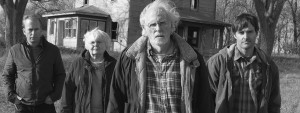
But my stomach churned the night my father called me, completely sloshed, to tell me that he had been selected on Kaun Banega Crorepati as a contestant. He could barely speak, and he wanted to celebrate by drinking more. He couldn’t even pronounce Crorepati. “Amitabh Bachchan called me and…I got it right!”
Prize money, I thought. Fictitious piles of wealth replacing a lifetime full of failed duties.
Later on, I discovered that he had phoned a friend of mine to tell him that he is now willing to PAY for my wedding. He wanted me to marry the girl I was dating back then, and he was convinced that he now had the money to host a lavish wedding. She was, after all, the only one that stood by me during that phase.
Woody tells his son at one point, after being badgered about his keenness to collect this invisible prize, that he wants a new truck. That is all.
On being pushed more, he finally tells David that he wanted to leave something for him. For both his sons.
David goes quiet.
I went quiet.
Something caught my throat. It all came flooding back to me. I had to pause, and take a deep breath. His sense of failure was so immense that he clutched onto a last strand of hope to redeem himself in his son’s eyes. To pay back for what he had made them go through. That one moment of honesty was so compelling and sharp, that David’s whole life changed after that. He finally, finally understood his old man.
And there was still time. There is still time.
Woody is my father. My father did the same thing. Unlike Woody—who is at an advanced stage of dementia and alcoholism—my dad fought back in more acceptable ways. Not to prove that he is still brilliant, or that he still has it in him. He always knew he had it in him, but having said that, he was rarely honest with himself.
But he did it for me. He continued to work through jobs, falling and rising, being fired and being hired, wowing people with his confidence and arrogance.
Five years down the line, if he doesn’t accomplish what he set out to do, he will become Woody Grant.
And I am prepared for that.
There is no shame in that.
The town of Hawthorne in Nebraska is the ultimate symbol of small towns. Of small town people, for their mentalities, their closed interactions and their routines.
Small towns consist of either retired people or children. Everyone in between seems to have left for greener pastures. Like I did, when I was 15. Fortunately, my father understood the damage a small town could do to teenagers, and we shifted to Bombay from Gujarat before it was too late.
My father was certainly not the only person struggling with addiction in that city (or town, depends on how you look at it). But he was made to feel like he was the only man on Earth committing this crime.
His best friends—parents of my childhood friends—tried to understand him for a while, but eventually, they abandoned him. ‘Abandoned’ may not be the right term here; it is a little unfair to them.
But that isn’t to say that they are fine people. That they bother to even think beyond “what people will say”.
Much like Hawthorne, people in this city resembled a pack of vultures when times were good. Everyone knew everyone, of course.
Ed Pegram, the man that threatens David to give him back his few bucks (with interest) that Woody once owed him, is the small town’s man of men.
He represented each face that turned behind my father’s back and called him a drunk when there was no hope, but came running back when things miraculously looked up. The cousins represented a few relatives that insisted that my father paid for his own father’s medical treatments, despite knowing that he had not a cent to his name anymore.
These people can’t entirely be blamed though. They are brought up in an environment that teaches them that alcohol is bad (Hell, Gujarat is a ‘dry’ state), and that alcoholics are bad people. The truth is far from it; alcoholics are weak people, and are often the best of them. Marital woes, divorces, affairs are terms that are frowned upon, as if it were a village where every human is born faithful, sober and happy forever.
Hence, those afflicted with the above, or those unfortunate enough to have it out in the open, can’t survive in these towns. Woody’s heart is too big to call Ed out on his bluff, because he is aware of the fact that he has no right to call anybody else a failure.
My father never mentions them. He now chooses to surround himself by people who care. But they have all chipped away at his soul a bit, and have taken away part of his heart.
Recently, when I visited a relative back home, he asked me about my father.
“How is he, you know…” he put up his thumb to his mouth, trying to use sign language as if I were deaf.
A bottle, he wanted to say, a drink. But his eyes fell down to his feet, and his voice automatically assumed a hushed tone. Even his eyes darted a bit both sides, to see if the coast was clear, for he was mentioning something taboo in a society that prided itself on cleanliness and godliness.
When the other relative sitting next to him said “drinking” loudly, this guy told him to shut up and looked to the kitchen where the (illiterate) cook was at work.
“Not so loud! You want everyone to know about our family?” he hissed.
“So, tell me about this new job interview he has!” he turned to me and chirped, all cheery and peppy, as if nothing had ever happened.
Woody, surrounded by family at the table, is quizzed incessantly about his lottery win.
They know deep inside that it could be a scam, but they’re so desperate to see Woody in a better light that they are convinced he is telling the truth. He is rich now. Finally, he can say he has succeeded. He is not a complete waste after all.
His sons insist it is false, but the relatives dismiss them, knowing that even news too good is akin to news too bad. But good news is definitely more preferable, even if not true. Especially when it concerns an old man that has little else to live for. Why else do so many people across the world fall for scams?
It isn’t because they’re dumb or ignorant. It is because they choose hope over the truth. If they had to, they’d slap him senseless to believe that he is telling the truth. Just like I would, when my father was out of control, when he was in a world that could not be defined, and when he refused to come back.
I wanted him to come back.
My father once paid Rs. 18000 to the owner of a car he barely grazed. The (Gujarati) man insisted that he would have him arrested, and unfortunately, my father was not sober. He was alone. And like always, he was in denial about his ability to drive.
He was taken advantage of when vulnerable, which is really no different from rape and abuse, instead of being helped back home.
That’s society.
Maybe, one day, I could go into a pub and punch the old geysers. I yearn to do so, but then I remember that, hey, there are no pubs/bars in Gujarat. But there have also been good people. Few and far between, but more so, in bigger cities where such diseases are common.
More importantly, there are help groups. It isn’t as easy as the alcoholics waking up and deciding for their own that they need help—that rarely happens—they just need to be told that there are others like them.
Misery loves company, and sometimes, that could even be a cure. But I’m careful to use that word ‘cure’.
There is no cure for alcoholism, just like there is no cure to Aids. The term is a blot to live with here, but it also spells some of the greatest comebacks humans are capable of. Like Messi, with a dwarfism condition, becoming the World’s greatest footballer. Like a runner with a weak heart winning a marathon.
My father is in the midst of one of his many great comebacks as we speak. He always is. He always is coming back – from bad spells, bad luck, bad people, bad friends and bad reputations.
And the final scene of Nebraska has put me back on his side.
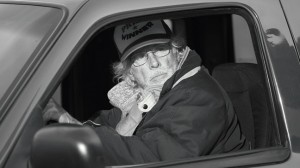
The final scene of Nebraska is perhaps the most evocative moment of the film.
David, who has already gained a new perspective on why his father is the way he is, knows that there is nothing Woody can do for him anymore. He is not a child anymore. He doesn’t need his care.
But David realizes that by indulging his old dad, by giving in to his delusional wishes, he could perhaps let his father feel like he makes sense. Like he matters once more. After all, is that not what we all want?
To matter, to be cared for, to feel young and happy once again, if only for a moment?
In Woody’s case, he wants to feel important again. Like he is someone, the way he used to be. He never wanted to be on the bad side of anyone in his godforsaken town, but he craved for respect.
His son may have punched and taught them a lesson, but for Woody, admiration and acceptance in their eyes is important. Still. After all these decades. David buys his dad a truck, after selling off his own car. He buys him an air-compressor too, after mistakenly stealing an old one he thought belonged to his dad.
Woody, who is wearing a ‘Prize Winner’ cap, sits in the passenger seat, probably trying to make sense of yet another failure. With that blank look. That zero gaze. Woody is aware of the fact that his son just bought him a truck.
“Dad, it’s your turn to drive.”
“You said I couldn’t.”
“Just a few blocks, down Locust Street. Come on, it’s your truck.”
Woody tries to make sense of this request.
He glances over at the truck. Why, it is my truck. He takes a deep breath, puts it into gear. And there we go.
He drives through the small town of Hawthorne one last time.
Looking good, Woody! He hears one of the town’s better residents wave out at him. But something is not right. So-
“Get down!”
“What, Dad…?”
“I said, get down!”
Looking good, Woody!
Ah. Now, it seems right. Woody gazes at the next man that waves out to him. His son, hunched over to be hidden in the front, stares at his peculiar old man.
Woody is not on his own.
But Woody believes, this one time, that he is on his own. In his new truck. Bought with the money they think he has won. Woody is a wild success. Woody can drive too. Woody can show everyone he hasn’t failed.
The icing on the cake- Ed walks out of a pub, with a swollen eye, and sees Woody drive past. Alone.
Woody has a look of defiance on his face this time. He knows Ed. He knows it was Ed’s fault. It still is. This should show him. I’m not as helpless as he thinks I am.
He drives past the woman he once loved. This was when he was a better man, in a good world. David smiles.
Yes, dad, you’re the man.
My father is a bad driver.
He claims he taught me to drive, conveniently forgetting that I went to driving school. His argument is that he was the one that introduced me to the streets of Bombay, so I shouldn’t mock his skills. Go figure.
Back home, he insists on driving, even today. No car he uses has less than a dozen dents and scratches by the end of his second attempt.
I didn’t do that, he says.
His reflexes have slowed, his memory is not what it used to be, but he will get behind the wheel willingly. I don’t let him, just like David never did, when I’m around.
But when I’m not around, he does what he pleases.
And now I understand why. It isn’t just about driving for him. It isn’t just about his car. It is a vehicle to prove that he is self-sufficient in the eyes of the world.
For a few minutes, he is the man that taught his son how to drive again. Next time, I’ll hand him the keys.
His response will be something on the lines of, “I’m better anyway”, and I will just nod and smile. This time, I will smile. I won’t argue. I can indulge him, though not as much as David does. He deserves his own drive.
For being a fighter. For at least believing he is.
He is still strong enough to be a fighter, unlike Woody. Believe it or not, he has age on his side.
Of course, I’ll take back the wheel as soon as he turns to wave at a familiar face.
(Originally published on Rahul’s blog)

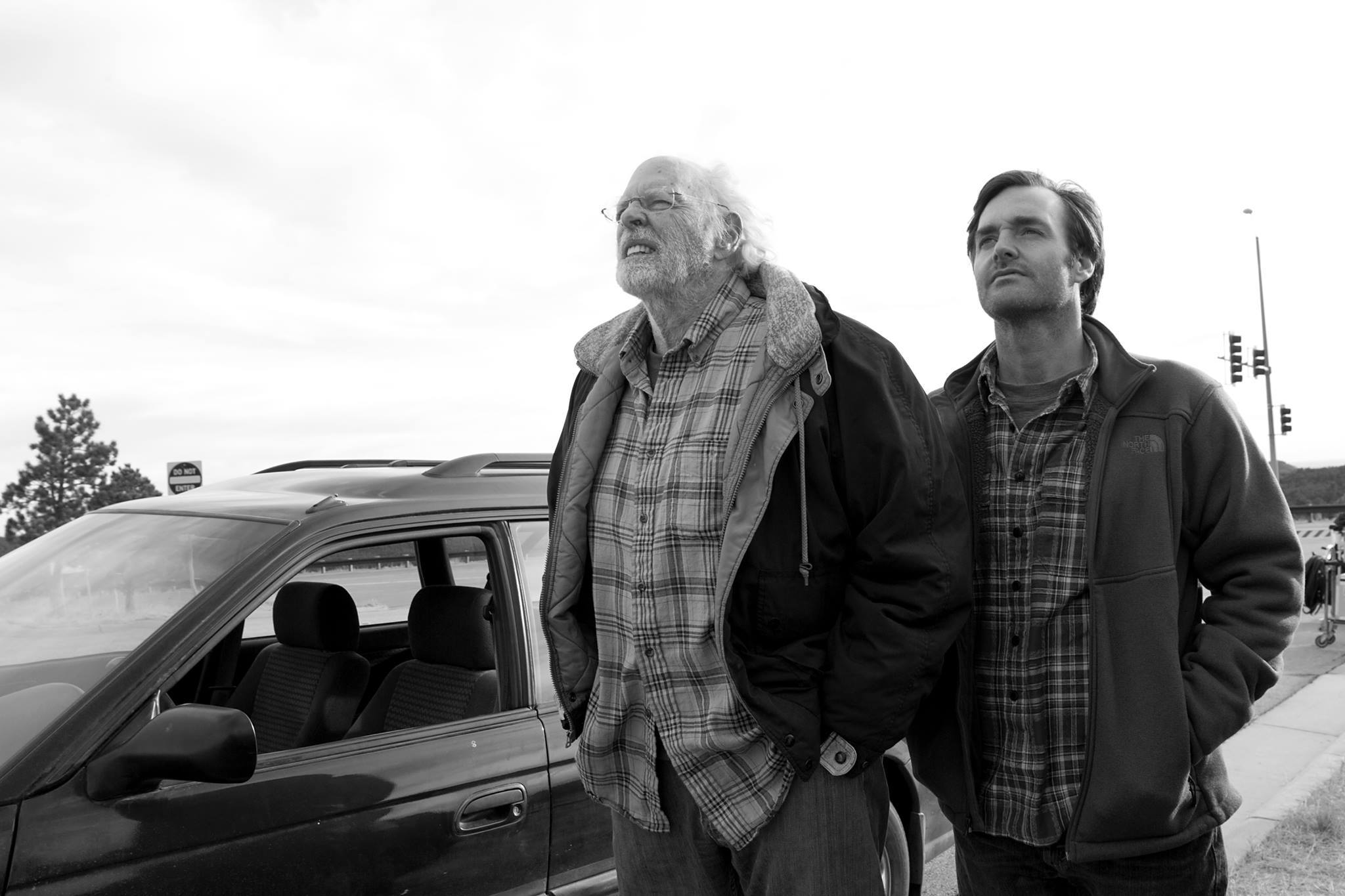
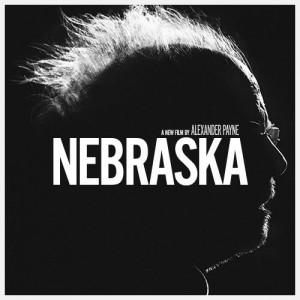
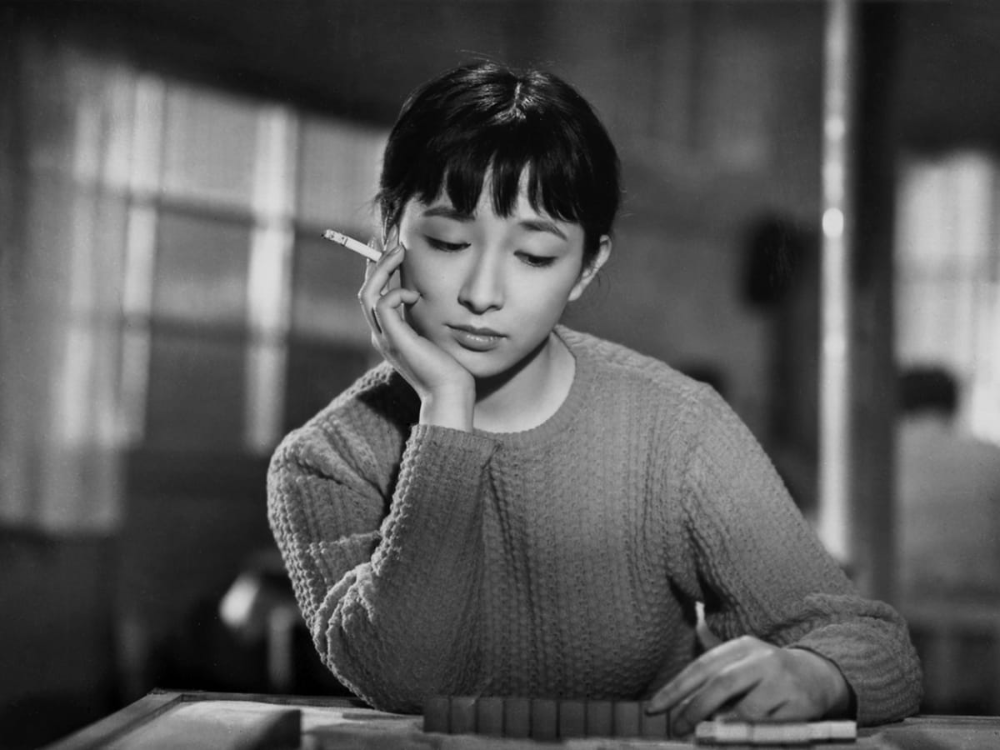
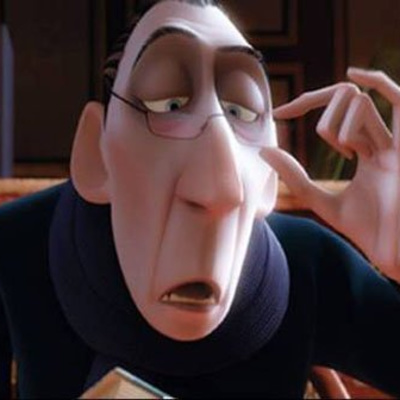



Leave A Comment
You must be logged in to post a comment.